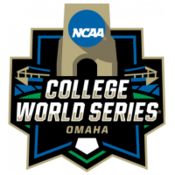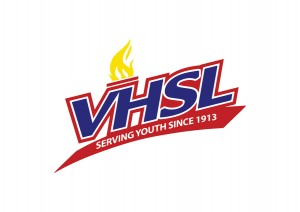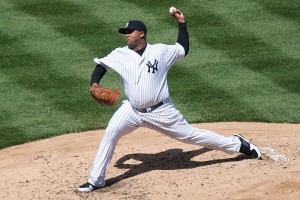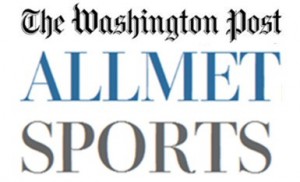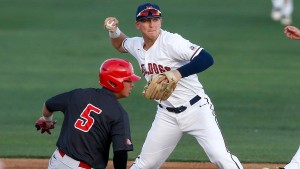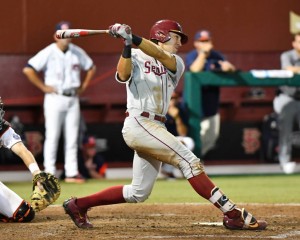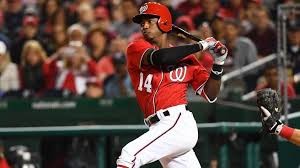
Victor Robles … under performing expectations in 2019? Photo via nbcsports
Hey team. A surprise mailbag from MLB Nats beat reporter Jamal Collier, dated 6/12/19. A good time for a mailbag, we’re post draft, post subtle winning streak, and now the Nats are kind of in seasonal limbo.
Here’s the questions he took and how i’d have answered them.
Q: Feeling good here — this stretch will at least make the season respectable. Question 1: How are you feeling after this run? Some on Nats Twitter want a fire sale of the team, saying everyone must go (for good return). Your thoughts?
A: This has been a good stretch. The Nats bottomed out after the 4-game sweep in NY, sitting at 19-31. From there the team has gone 12-4 against Miami, Atlanta, Cincinnati, San Diego and the Chicago White Sox to now sit exactly at 31-36. Not to sound cynical, but really only two of those games were impressive (the two game mini-sweep at division-leading Atlanta). Miami is awful, Cincinnati is 6 games under .500, and San Diego/Chicago WS are basically treading water at .500. But, good teams beat mediocre to bad teams, so 12-4 is a good sign.
Their next Eleven games are against better teams, all with winning records but all at home. A massive 11-game home-stand against Arizona, Philadelphia and Atlanta. Right out of the gate the Nats are getting Arizona’s 1-2 starters in Zack Greinke and Robbie Ray (who, lest we forget, was a Nats draft pick many years ago). After that the Diamondbacks throw one Taylor Clarke, who just happened to grow up in the DC area and went to Broad Run HS in Ashburn. So an interesting weekend series for sure. From there, we’ll have two pretty important show-me series against the two divisional leaders, and we know the way the rotations line up that they’ll get Jake Arrieta in the opener. Which means they’ll then get Zack Eflin, another former Nats hand in Nick Pivetta, and then Aaron Nola if the expected rotation holds. That’s tough: Eflin has been good all season, Nola has shown some life lately, and Pivetta has been awesome since his return from the minors.
You tell me; this smells like a 6-5 home-stand; a split with Arizona, a split with Philly and then a series win against Atlanta. Maybe worse if the Nats run into hot Philly pitchers and/or Keuchel with Atlanta.
BUT, but, after that, their next 12 games taking them to the all-star break are against three of the worst teams in the league: Miami, Detroit and Kansas City. I think this team can and should go 9-3 or 10-2 in those games.
So, assuming the team goes 6-5 in the homestand against quality teams and then 9-3 heading into the all star break, that’d have them sitting at 46-44. That’s probably a good enough record to convince management to hang in there to compete in 2019 and not have a sell-off … at least not yet. If the team was sitting a 2 games over .500 right now, they’d still be several games behind in the WC standings, but certainly not out of it.
But that doens’t mean the team won’t eventually do a sell-off. Their schedule post-all star games goes like this: At Philly, at Baltimore, at Atlanta, home to Colorado, home to LA Dodgers, and then home to Atlanta, taking us up to the trade deadline of 7/31/19. There’s your season. If the Nats come out of the ASG break and fall flat in those first 9 away games, mostly against tough divisional opponents, that could be it.
So my new stance is this: Its nice that they went 12-4. Yay! Call me in mid July b/c that’s when we’ll really now if its go time or sell time.
Collier mentions the weakness of our recent competition, and says he’s positive about the team … but thinks they may have dug themselves too much of a hole. He also notes that Atlanta just added a former Cy Young winner in Dallas Keuchel, which significantly improves their rotation and makes them even harder to catch.
—
Q: What is going on with Patrick Corbin? After that complete game, he’s been struggling. Is he overworked? Injured?
A: I wonder if this isn’t just what we get with Corbin. Here’s his 2018 game log: check out the end of May/early June. Inside of four starts, he saw his seasonal ERA jump from 2.47 to 3.48. A full point in four starts. Now look at his 2019 game log: he’s jumped from 2.85 to 4.11 in his last three starts.
Its notable that his last three mediocre starts followed … a 9-inning complete game 116-pitch outing. Was that a factor? Doesn’t seem like it; if you notice he got an additional day of rest after 116 pitches, which wasn’t even his season high.
He mentioned in interviews perhaps a slight mechanical issue was at hand; I suspect he’s just run into a rough patch that a couple starts against crummy opponents may very well fix up.
Collins says no injury, just missing locations. We’ll see what happens next.
—
Q: Is it fair to say that Victor Robles is underperforming expectations?
A: Yes. So far he’s slashing .236/.310/.413. That’s 50 points of a BA below last year’s sample and more than 100 slugging points. And compare to his career ML slash line of .300/.392/.457.
I dunno; he is trending to a 20/20 season (currently sitting at 9 homers, 9 SBs). And so far in 2019 he’s showing *really* bad range stats in CF (-17.4 UZR/150 so far after positive figures last year) to go along with a slightly positive DRS figure and negative arm values. but, as Collier notes, he’s in the 89th percentile for a Stat-cast centric defensive measure. So who knows (defensive stats are tough).
This for a prospect rated well ahead of compatriot Juan Soto, who has slightly cooled off from last year’s debut numbers, but is still rock-solid in the 128 OPS+ range right now for 2019.
Collier says he started hot, has cooled off significantly and perhaps we were all expecting too much from him. All true.
—
Q: What is a realistic timetable for Ryan Zimmerman’s return?
A: Great question. Planter Fasciitis (speaking as someone who once had it) can be a pretty bedeviling injury to overcome. You can’t really “rest” a foot. You kind of have to run on it. So you’re constantly re-injuring it. My cynical feeling is that, if Ryan Zimmerman had been hitting .290 instead of .213 he’d still be starting, with shots of cortisone in his foot to help.
Collier says he traveled with the team to Chicago and is hitting in cages … just not running. He’s guessing its still weeks away, and will have to include some rehab appearances in the minors. Certainly his 2020 option decision is not looking good for the team.
—
Q: What is Koda Glover’s status? Haven’t heard anything about him in a long time.
A: wow, doesn’t this kind of feel like Christian Garcia redux? What is Koda Glover doing? Officially the injury is “Strained forearm” and the date was 2/24/19. So we’re now nearly at 4 months onwards for a forearm injury for a former TJ guy. Not good; if I had to guess (since that’s all we have) i’d say he probably re-tore the UCL and the team is rehabbing in lieu of a second TJ.
Side note: also with zero updates is Austen Williams, who struggled through one appearance, hit the D/L with a “Sprained shoulder” (notice the slightly more dangerous diagnosis sprain versus strain) … and yet still sits on the 10-day DL (now approaching two months), when clearly to me he could have also gone to the 60-day DL and the team could have then kept Austin Adams or maybe Jimmy Cordero …both of whom immediately got claimed by other teams and/or have had some success this year.
Collier says he’s playing catch and doing long toss. That’s … not much for 4-months onward. No pitching from flat ground, no mound work, no sim games, no XST competition.
—
Q: What is your favorite HR celebration right now — Eaton/Kendrick going for a drive, Suzuki catching some waves, or a DJ Parra dance party?
A: I have no opinion here 
Collier says its the dance party. You have to hand it to Gerardo Parra, he has definitely brought some intangibles to this team. Its Narrative bs … but you can see it with your eyes.
